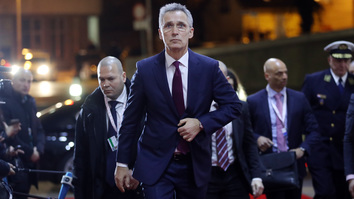KABUL -- A suicide bomber killed at least three people and wounded 15 others near a military outpost in Kabul Wednesday (April 29), as observers say the Taliban have launched 55 attacks each day since signing a peace deal in February.
Interior Ministry spokesman Tariq Arian confirmed the toll, calling the blast "a crime by the enemy of Afghanistan against civilians during the month of Ramadan".
The attack appeared to target an Afghan special forces camp on the outskirts of Kabul, a security source told AFP.
No group has claimed responsibility, but the Taliban are investigating whether their own members were behind the bombing, said Taliban spokesman Zabiullah Mujahid.
Violence surged after peace deal
The blast comes as violence has surged across Afghanistan, with the United Nations reporting earlier this week that attacks have spiked following the signing of a landmark agreement between US negotiators and the Taliban in late February that was supposed to lay the groundwork for an Afghan-led peace process.
On average, the Taliban have launched 55 attacks each day since signing the deal in Doha on February 29, an Afghan official said.
Dozens of Afghan security personnel and Taliban fighters have been killed almost daily as both sides ramp up operations.
Kabul has been spared most of the violence. However, a string of attacks targeting minority groups proves the capital remains vulnerable to militants.
Coalition warns the Taliban
Gen. Scott Miller, commander of the NATO-led mission in Afghanistan, warned the Taliban to reduce the violence they have been blamed for around the country.
"If the Taliban continues attacks, then what they should expect is a response," he said Tuesday during a visit to a commando base in Kabul. "We need them to reduce the violence and … give political leadership on all sides an opportunity to determine the peaceful way forward."

![Security personnel gather on April 29 near a military outpost on the outskirts of Kabul where a suicide bomber killed at least three people and wounded 15 others. [STR/AFP]](/cnmi_st/images/2020/04/29/23809-000_1qw086-585_329.jpg)







Instead of unity and unison, why did it finally cause ethnic division? Or why is fratricide continuing? All these things are because of "ignorance." Ignorance is the root of all miseries as well as the greatest cause of economic and political weakness in the society. These terror and violence will continue unless the true meaning of patriotism and the motherland, protection of territorial integrity and national sovereignty of the country are taught to our people through visual, audio, print and other mediums. But I can say that the visual media in all parts of Afghanistan should be connected to satellite. This will pave the ground for broadcasting awareness programs on TV for everyone without buying a TV antenna or antenna amplifier for themselves. This can play a very much important and valuable role. Through this method, I am sure that the intensity of the war in this country will be completely reduced and the intellectual capacity of the whole society will be increased.
Reply3 Comment
The root of all miseries is ignorance. In 1953, Fidel Castro won the war, but Cuba had a serious problem to fight against the United States and the capitalist world. That was illiteracy. About three quarters of Cubans were illiterate, and Cuban communists knew that illiterate people would not understand their ideology and they would not support their system against the United States and the Western bloc until they understood the ideology. Fidel Castro made a revolutionary decision in 1961. He closed down all schools and universities. A book was published on literacy that contained the concepts of the communist revolution. This book taught the methods of teaching to teachers, students and professors in the emergency camps. Then, each person was sent to a family as a teacher in the villages and residential areas. The teacher who was sent had a bed, gas lamp, and a literacy book. During the day, the teacher practiced literacy with the wife of the family and at night with the husband of the family using the light of the gas lamp. This way, Fidel Castro educated all the Cuban people in just one year. Cuba did not protect the industry, trade or oil reservoirs very much against the attacks and sanctions of the Western bloc, but it was awareness and excellent education that put the nation in support of their government. On the contrary, education and teacher in Afghanistan have been of the most forgotten institutions and social classes over the past two decades. The country needed a g
Reply3 Comment
Due to the wrong policies of the government, war and explosion claim the lives of poor people every day. If government had a clear policy against Taliban and other terrorist groups, the situation would not have been so dire now. The government must ensure security of its citizens, and if it can't, let Taliban come to power and ensure the security of the people. It doesn't matter to the people who should be in power, Ashraf Ghani or Mullah Baradar. Security is important for the people. For the sake of God, Ashraf Ghani! Please ensure the security of the people. All the people were destroyed.
Reply3 Comment